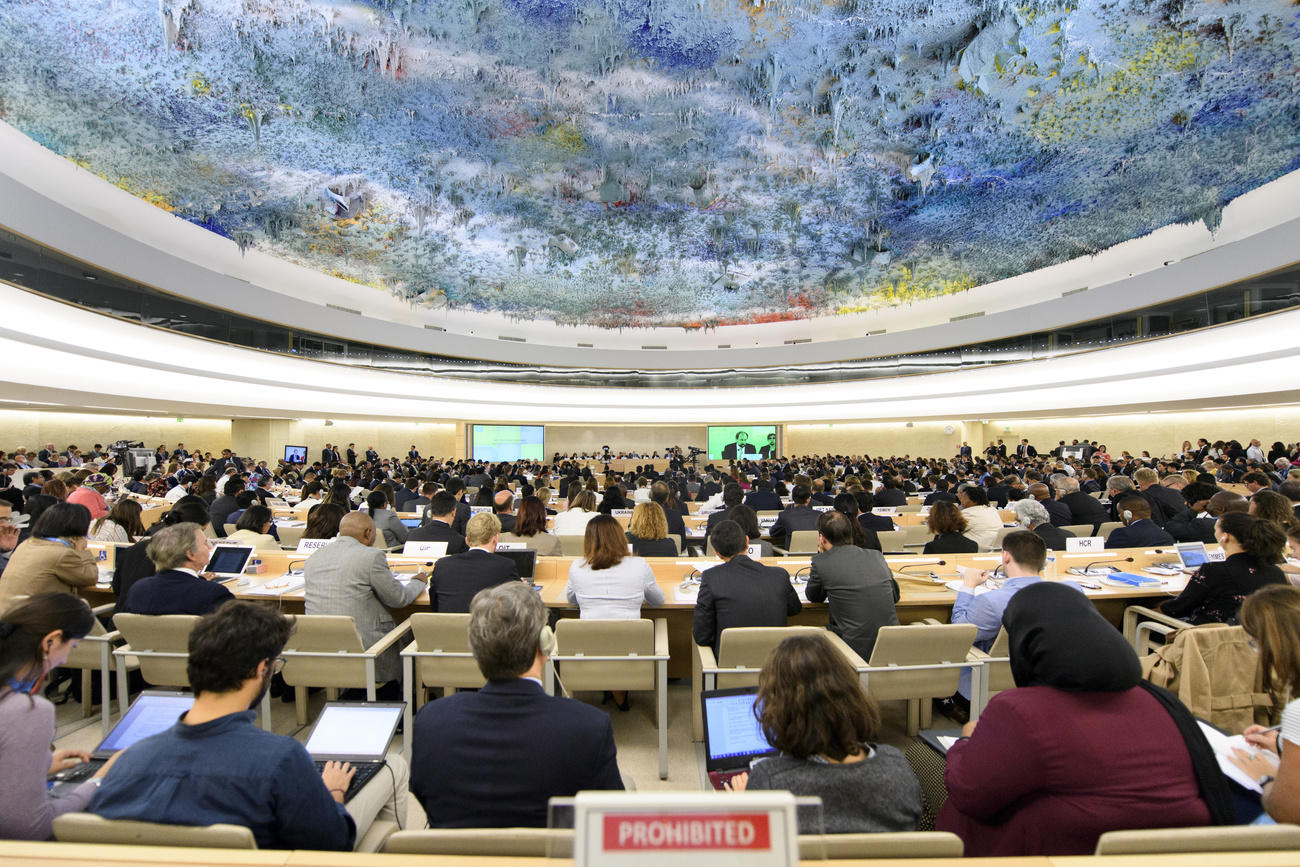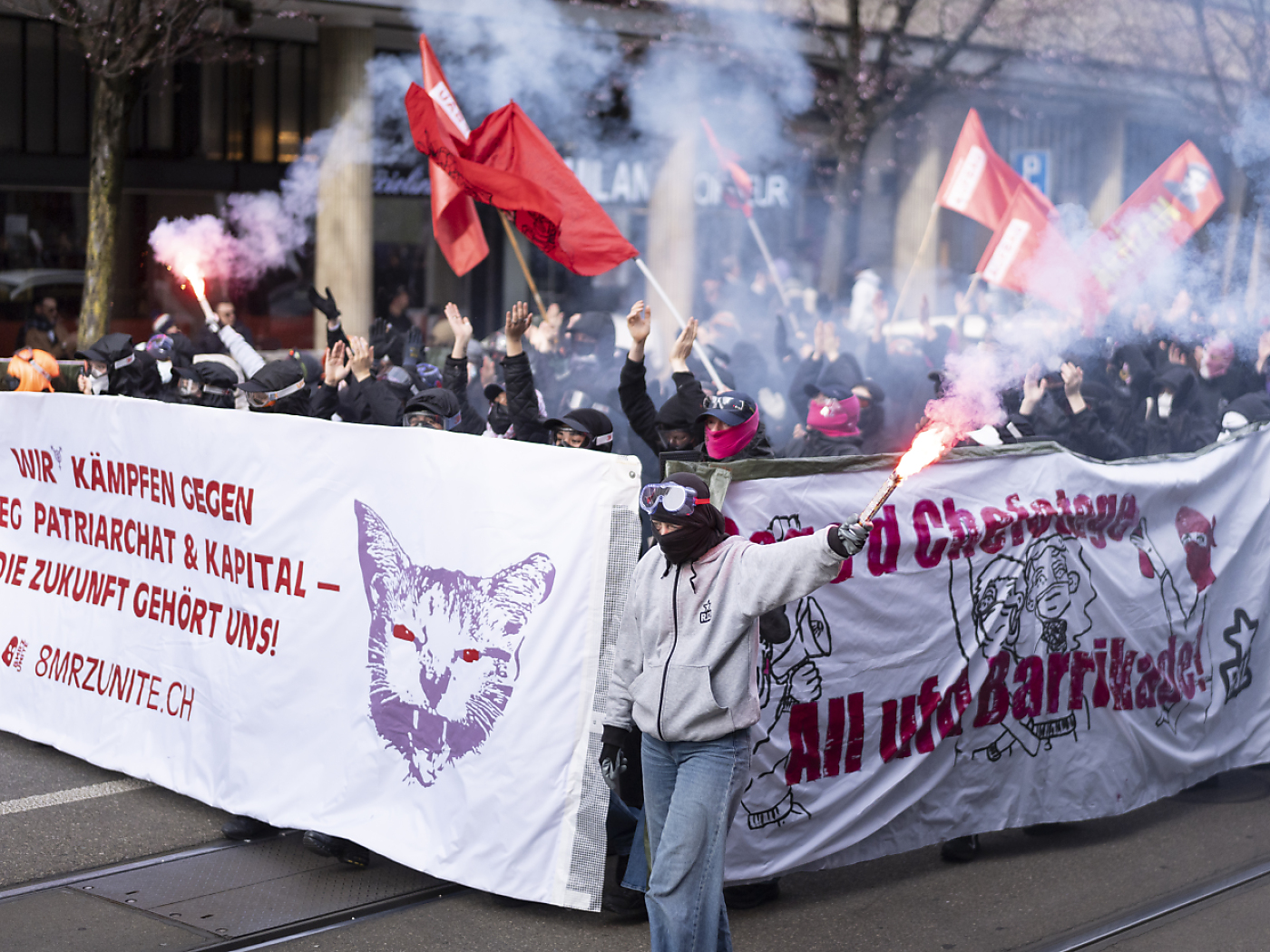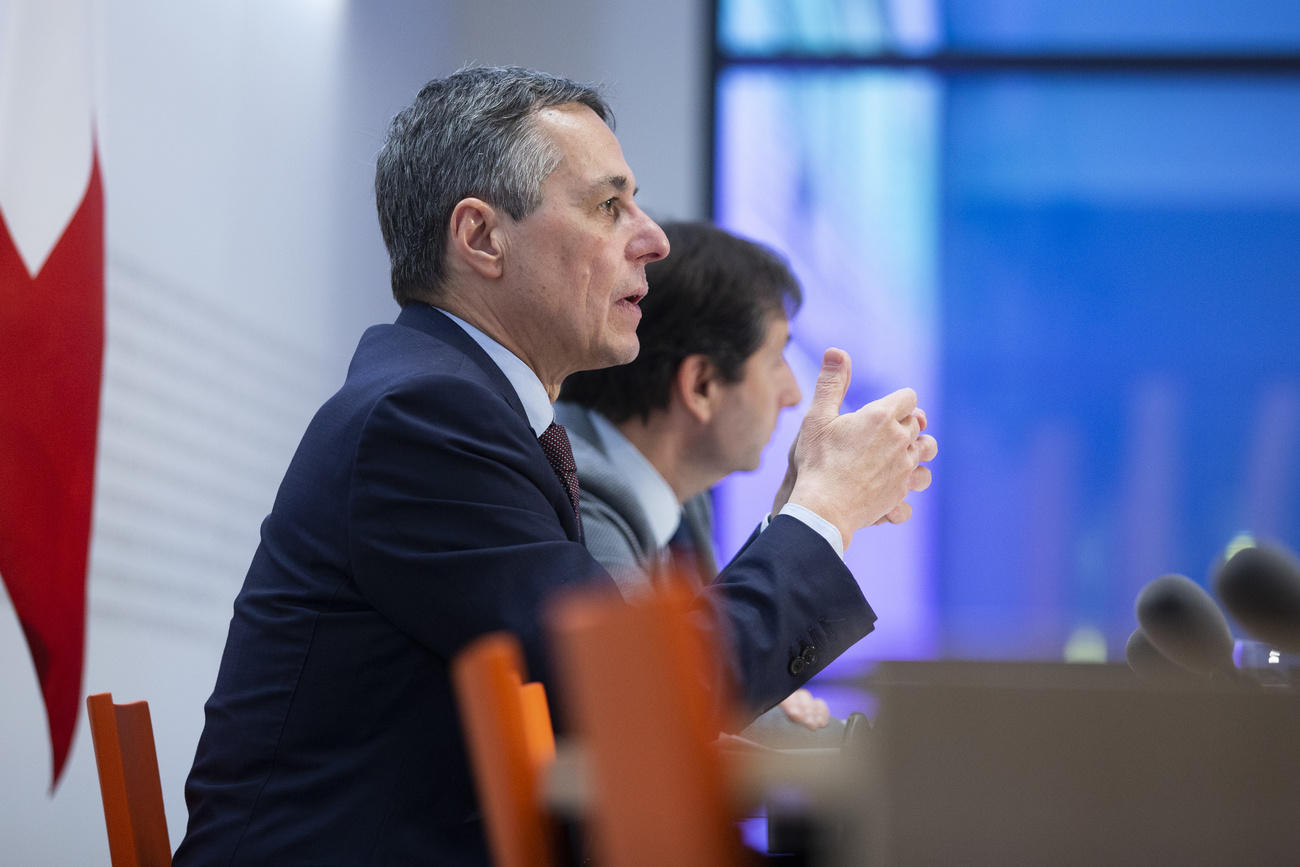Swiss minister warns against spread of online hate speech

Swiss Foreign Minister Ignazio Cassis has warned against the anonymous nature of cyberspace and the dangers of online hate speech in his address to the United Nations Human Rights Council in Geneva.
“Digital technologies have great potential to strengthen human rights. The internet gives access to unprecedented quantities of information, allowing new opportunities for freedom of expression and assembly. But at the same time, the anonymous nature of cyberspace is creating new threats and encouraging the spread of hate speech,” Cassis told the councilExternal link on Monday.
The minister underlined the importance of digital technologies for Swiss foreign policy.
“Under the label “Tech 4 Good”, our development cooperation is expanding a range of instruments: from fintech to drones. And in cooperation with the private sector and universities, we are exploring new avenues of “science-diplomacy” to help states to engage in dialogue and individuals to improve their quality of life,” he said.
Geneva has grown into a global hub for digital governance. In recent years, the Swiss authorities, international organisations and industry have launched various initiatives such as Geneva Internet Platform, the Cyber Peace Institute, the Swiss Digital Initiative Foundation and the Geneva Science and Diplomacy Anticipator Foundation.
During his speech, Cassis also underlined the importance of the UN and the multilateral system for Switzerland; this year the global body is celebrating its 75th anniversary.
“The last 75 years have demonstrated that the big challenges for humanity can only be met together. This is particularly true in the field of basic human rights,” he said.
The same goes for the environment and the combat against climate change, as “no country or continent can resolve the problem alone”, Cassis added.
Gutérres’ call to action
At the start of the 43rd council sessionExternal link, UN Secretary-General Antonio Gutérres gave a highly anticipated speech in which he issued a “call to action” to countries, businesses and all people to help renew and revive human rights across the globe.
“Human rights are under assault,” declared Guterres, who has reportedly faced internal criticismExternal link over his record defending human rights.
The UN secretary-general laid out a seven-point plan linking human rights to issues like sustainable development, crisis prevention, gender equality, the development of the digital age, and freedom of expression and civil society.
Kenneth Roth, executive director of Human Rights Watch, welcomed Guterres’ speech but urged him to be more direct in his statements.
“By providing a strong voice advocating for victims and condemning abusers, the Secretary-General can stand tall against governments committing serious rights violations – whether it’s the mass arbitrary detention of Uyghurs in China, atrocities committed against Myanmar’s Rohingyas, indiscriminate Russian-Syrian bombing of civilians in Idlib, or the forced separation of children from their parents at the U.S. border,” Roth said. “But this initiative will succeed only if the Secretary-General provides robust and regular public commentary, and does not shy away from naming abusers.”

More
How should we regulate the magic of technology in the 2020s?

In compliance with the JTI standards
More: SWI swissinfo.ch certified by the Journalism Trust Initiative





















You can find an overview of ongoing debates with our journalists here . Please join us!
If you want to start a conversation about a topic raised in this article or want to report factual errors, email us at english@swissinfo.ch.